
The first thing I discovered is that you need a different mindset; reading for pleasure and reading to write a review are different. The second; many reviews don’t say much other than repeat what is written on the book jacket, or that the reader liked or didn’t like the book.
I needed to do some research and find out what the “experts” believe should be in a good book review.

After reading “how to” articles by a number of experts on book reviews, there were several things that all of them advised. Like everything else, most of the rules of thumb are just common sense – but common sense isn’t so common. Each of us needs to be reminded of every now and then. Remember, there are differences between books reviews of fiction and non-fiction. I am focusing on review of novels.
● Good Reviews are a lot of work.
● Be brief / pithy
In most cases, less than a thousand words.
● Target type and length of review to the place to be published/ sent
Goodreads, Amazon, and others have specific guidelines for reviews. Don’t use the same review for all sites. Write separate reviews.
● Prepare before reading the book
In order to write a good and complete review, you need to prepare yourself beforehand and know what you are looking for as you read.
● Review the novel you read, not the novel you wish the author had written.
● Remember, you are writing the review for the reader, not the author.
PREPARE TO READ THE NOVEL
Before reading the novel, decide whether or not you intend to write a review. Reading a novel for pleasure first, and then deciding to review either produces a less helpful review or requires more work.
● Determine how you will keep notes. It’s useful to note passages that demonstrate points in your review.
● Think about the genre of the novel and what expectations readers have for that genre. You are looking for whether or not the genre is correct.
● Consider what the title suggest to you. You may need to advise the reader.
● Be clear on what you are going to consider while you are reading the novel.
I love lists, so I have created my own checklist for these items with space to record my thoughts and examples as I read. I find the process similar to preparing to judge a context.

These and other appropriate questions should be kept in mind while reading. Note the places in the book which are outstanding or letdowns.
● Can you envision the setting, time period, atmosphere or mood, the season? Can you put yourself into the story?
● What is the story about? How soon do you know what it’s about?
My own two cents: By the end of the first chapter, the reader should know what kind of novel it is, the mains characters (or at least one of them), and the first goal. The protagonists’ goals may change through the course of the novel, but there should be an initial goal.
● How is viewpoint handled and does that contribute to or detract from the story?
● Are the characters well-drawn and multi-layered? Believable? Likeable? Not particularly likeable, but intriguing? Which characters move the story?
● Is dialogue believable?
● What is the theme? How many pages does it take to really understand the theme of the novel? What elements make this apparent to the reader.
● How does the story begin: action or description? What elements are introduced to the reader in the first chapter? Is there a good hook?
● Does the genre seem to be appropriate for the story?
● Are the loose ends tied up before the end of the novel?
● Is the conclusion / resolution satisfactory?

Gather your notes and thoughts
At this point you might want to think about your reaction to the overall experience. -- how you feel about the novel and why? Then review your notes.
● Is there a particular audience that the novel would, or would not, appeal to?
● What is the overall tone of the novel? Suspenseful? Thrilling? Melancholy? Reflective? Humorous? Pedantic? Heartfelt? This give the reader an idea of what to expect from the novel. The tone may not be spelled out, but should be clear by the tone of the review.
● How would you describe the author’s writing style?
● Is it well-edited? Are their inconsistencies in the storyline?
● Does the novel “feel” as though it needs more work?
● How does this book compare to other works of the author? Same themes?
Identify concrete examples and/or quotes which illustrate what you liked and disliked about the work.
Contents of the Review
Experts are consistent with what should be in the review, in general terms, but often define those differently.
One expert recommends the reviewer “Have an opinion. Even if your opinion is totally middle-of-the-line — you didn’t hate the book but you didn’t love it either — state that clearly, and explain why.”
● Title, author, and genre
● A brief synopsis of the storyline
Be sure to avoid major reveals or spoilers. Write in your own words and don’t just copy the book jacket. The synopsis sets the stage and gives the reader a sense of the book without explaining how the central issue is resolved.
The summary should also include (but without spoilers or story ending):
▪ The genre
▪ Theme
▪ Setting
▪ Main conflict
▪ Main characters
Exactly how much of the story should be contained in the review varies depending on the expert, but they all agree on “No spoilers”. Reedsy.com recommends not mentioning anything that happens beyond the midpoint of the novel.
● Critique / Evaluation
Dudleycourtpress.com says, “As a critical assessment, a book review should focus on opinions, not facts and details.”
A good review shares the reviewer’s good and bad experiences with the novel. Be honest but avoid being rude, offensive, and insensitive. Give an honest appraisal of the book from your perspective, and tell the reader the reasons you reacted that way. Any the considerations touched on above are appropriate for the critique, but only those that apply. Keep it short.
This is where you can use examples or quotes from the book to demonstrate what you liked and disliked.
Also, comments on the author’s other works might fit here or in recommendation, such as: “If you liked Jane Doe’s Bridges, you will enjoy River.”
● Recommendation
You don’t have to write, “I recommend…” Your opinions and recommendation should be clear by now if you have woven them into the text and selected words carefully.
Praising the author is up to the reviewer, but only when they deserve it. Don’t sound like you are “sucking up”.
Identify which audience would appreciate the book, which wouldn’t.
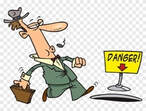
Jay A. Fernandez, professional writer and editor, writing for Lithub.com/13-common-mistakes, lists thirteen common pitfalls in writing reviews. I’m sure there are a lot more, but keeping track of these is enough to keep you busy.
Length of the review has already been mentioned, but here are some of Fernandez’s others.
● “Grandiose claims
Beginning a review with a hyperbolic sentiment may sound good, but what does it actually mean?”
Personally, I would throw into this category of mistake statements like “This book changed my life.” I doubt that rarely happens in the short run.
● “Lack of clarity”
● “Repetitiveness and redundancy
This typically stems from your impulse to make sure the reader cannot possibly miss the incredibly insightful point you’re making.”
● “Casual narcissism
There’s a curious paradox at play with this one, and I see it all the time. Yes, you’re the one reviewing the book. Congratulations! But, for goodness sake, you don’t need to call attention to it.”
● “Over-explication of plot
Describe like dimensions of a pool without letting reader jump in the water.”
I really like this analogy.
● “Nonsensical arguments
This is not the same thing as lack of clarity, though they can overlap. One involves employing unnecessarily florid language and galloping sentence construction to obscure a perfectly good point, while the other was never a worthy point to begin with.”
● “Self-flattering literary references
I would suggest that you avoid throwing in those references to Heraclitus and Anna Akhmatova unless you’re sure they’re organic. Often they have only the most tenuous relevance to the point at hand. Their only purpose is to show the reader that you are a reviewer with a breadth of knowledge…”
● “Limiting assumptions
Let your deft description of plot and sharp analysis of the strengths and flaws of the writer’s work lead the reader to decide for themselves whether the book is going on the Buy Now list.”
This point is a bit inconsistent with advice of other experts to mention which audiences would and wouldn’t like the novel, but I strongly agree with good plot description and good analysis letting the reader decide. But what do I know?
● “Structural Seizeure
Make it flow A review that has random blocks of plot description dumped here and there, out of order, requires the reader to do too much work sussing out what’s happening.”
● “Inconsistent Pronouns
In making reference to the potential reader of the novel (and reader of the review), too often the reviewer uses a mix of pronouns that is disorienting. If you’re sometimes referencing “you” and sometimes “we” and other times “one” and somewhere else “reader” or “readers,” it’s sloppy and confusing.”
Never use “I” in a review. It is not about the reviewer. That I get, but I don’t believe readers of reviews get that confused with these “inconsistencies.” I believe some of them coming from an effort to avoid repeating the same words over and over and over.
● “Lack of criticism
Unmitigated praise is logically absurd. Every work of writing has its weaknesses, especially once personal tastes are factored in. It is your job to point to them, in a clear-eyed but tactful (and tactical) fashion that measures the work against reasonable standards for literature and/or its genre. If the prospect of hurting an author’s feelings causes you to hesitate, that’s a good sign that you’re likely to be respectful. If you aren’t willing to run that risk at all, you oughtn’t be reviewing books.”

This is another of Fernandez’s pitfalls.
“Do not review anything by anyone you know or have had more than glancing contact with in your professional or personal life. The reason for this should be obvious. Otherwise authors may as well get their mothers to write the reviews. This goes for grudges, too.”
I believe Conflict of Interest warrants a section of its own. At one time, Amazon actually encouraged authors to have their friends use the Customer Discussions feature to promote their book, but that has changed.
Reviews by family, friends, and other authors was a hot topic for discussion among writers when Amazon came out with the policy of taking down reviews by other writers. The “handy hint” of not writing reviews for other author-friends and friends emphasized by nearly every expert of book reviews. Amazon’s current policy says, “We don't allow individuals who share a household with the author or close friends to write Customer Reviews for that author's book.”
David Wogahn, writing for Authorimprints.com/, defines the difference between customer and editorial reviews and gives an overview of what can and cannot be done in relation to reviews.
● “Customer Reviews
Reviews written by regular readers who also assign a number of stars (1-5). Most authors are referring to Customer Reviews when they reference a book's review count on Amazon.”
● “Editorial Reviews (According to Amazon)
An editorial review is a more formal evaluation of a book usually written by an editor or expert within a genre, but can also be written by family and friends.”
Sorry. Someone needs to help me understand. I find some of the suggestions about not writing reviews -- for authors you know -- a little confusing. After all, writers are also readers…big time.
However, I learned during my thirty-five years in government, that the appearance of Conflict of Interest can be damaging even if legally or ethically there is no real Conflict of Interest. If you value your reputation as a reviewer, or simply wish to avoid any “Appearance of Conflict”, regardless of real or legal conflict, then you should probably follow Jay Fernandez’s advice and simply not write those reviews.
If you do have a connection with the author or have received an advance copy of the book to review, be honest with the reader and let them know. In any case, review and follow the book review guidelines for the intended site.
Amazon Customer Reviews (FAQs from Authors)
https://www.amazon.com/gp/community-help/customer-review-guidelines-faqs-from-authors
Amazon Community Guidelines
https://www.amazon.com/gp/help/customer/display.html/
Amazon Promotional Content
https://www.amazon.com/gp/help/customer/display.html?nodeId
Goodreads Review Guidelines
https://www.goodreads.com/review/guidelines
Author Guidelines
https://www.goodreads.com/author/guidelines
Sources:
https://readingladies.com/2019/01/12/how-i-write-a-fiction-book-review/
https://writingcenter.unc.edu/tips-and-tools/book-reviews/
https://www.dudleycourtpress.com/amazon-reviews-how-to-write-a-good-book-review/
https://reedsy.com/discovery/blog/how-to-write-a-book-review
https://lithub.com/13-common-mistakes-in-book-reviewing-and-how-to-avoid-them/
https://www.lexico.com/grammar/writing-a-fiction-or-non-fiction-review
https://www.writing-world.com/freelance/asenjo.shtml
https://www.writing.ie/guest-blogs/do-book-reviews-have-genres-too/
https://www.authorimprints.com/amazon-book-review-policy-authors/#:~:text=Amazon%20says%3A,feature%20to%20promote%20their%20book.
https://www.amazon.com/gp/help/customer/display.html/ref=amb_link_1?ie=UTF8&nodeId=201602680&pf_rd_m=ATVPDKIKX0DER&pf_rd_s=center-1&pf_rd_r=RZ3FMMTWWMEHSZ8ZM7CG&pf_rd_r=RZ3FMMTWWMEHSZ8ZM7CG&pf_rd_t=7001&pf_rd_p=0899374c-d640-4eb5-b09a-46f41837ca2b&pf_rd_p=
https://www.amazon.com/gp/community-help/customer-review-guidelines-faqs-from-authors
https://www.authorimprints.com/amazon-book-review-policy-authors/#:~:text=Amazon%20says%3A,feature%20to%20promote%20their%20book.
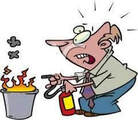





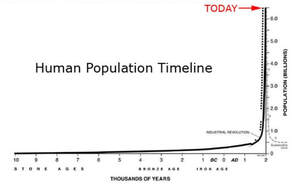






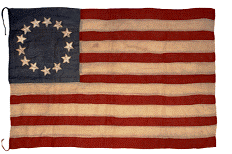

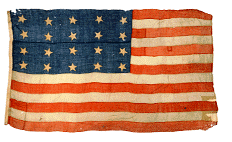

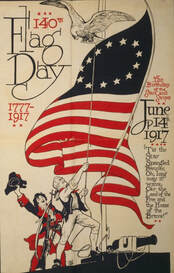
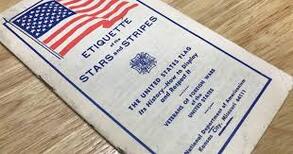






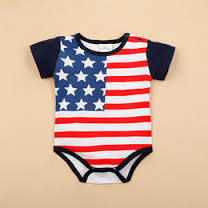



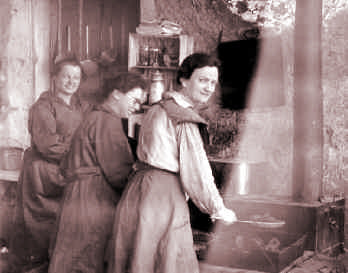
























 RSS Feed
RSS Feed